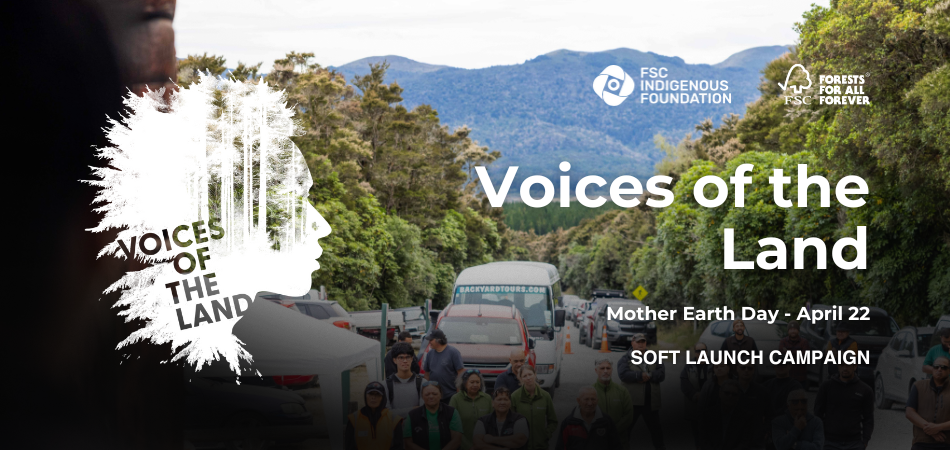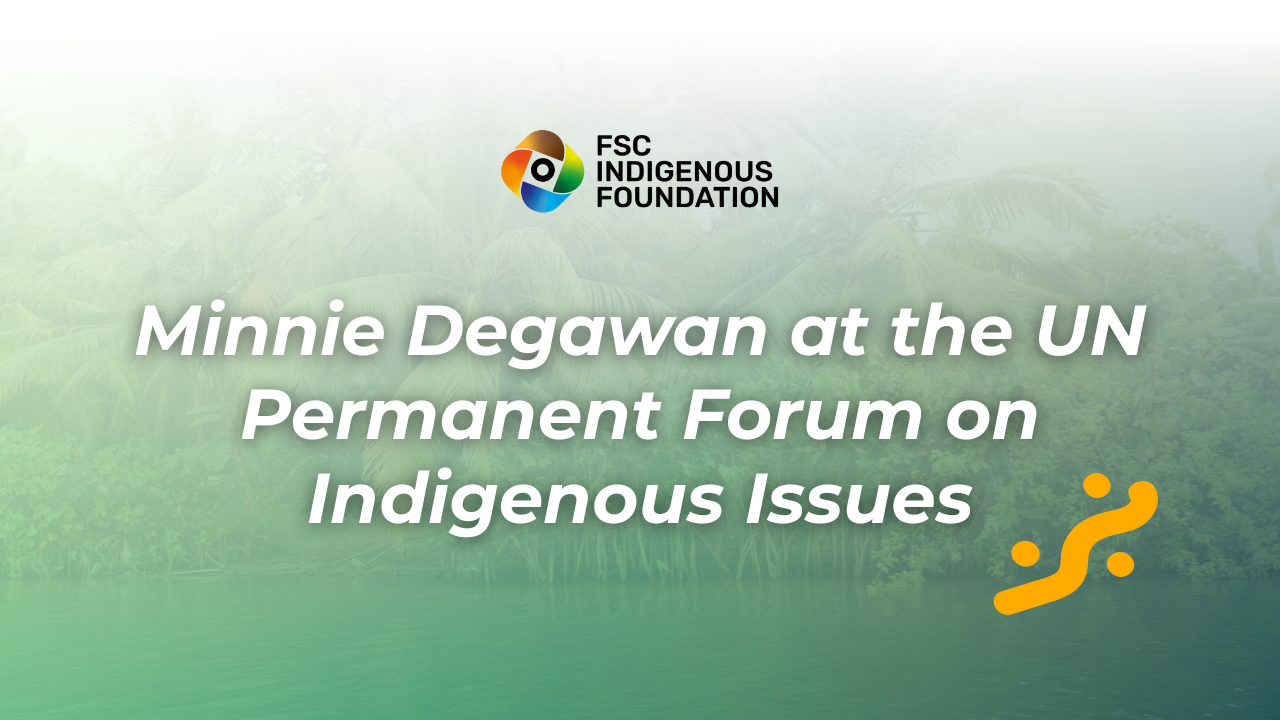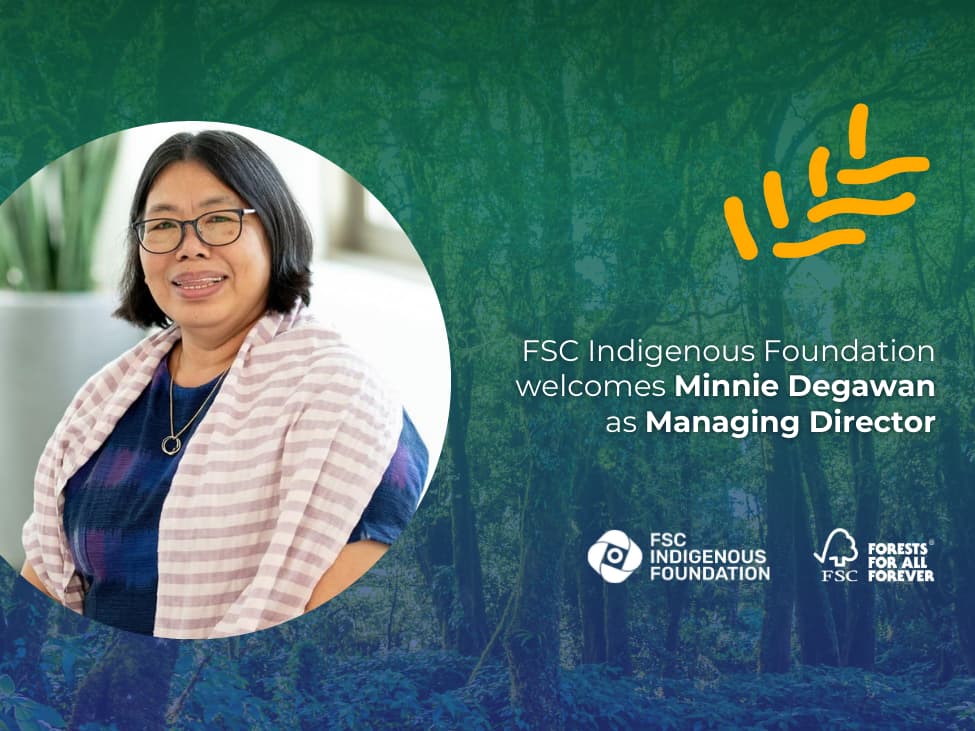The FSC Indigenous Foundation Will Be Present at the Global Events Meeting Point in Panama 2025
Climate Week and Nature Summit in Panama
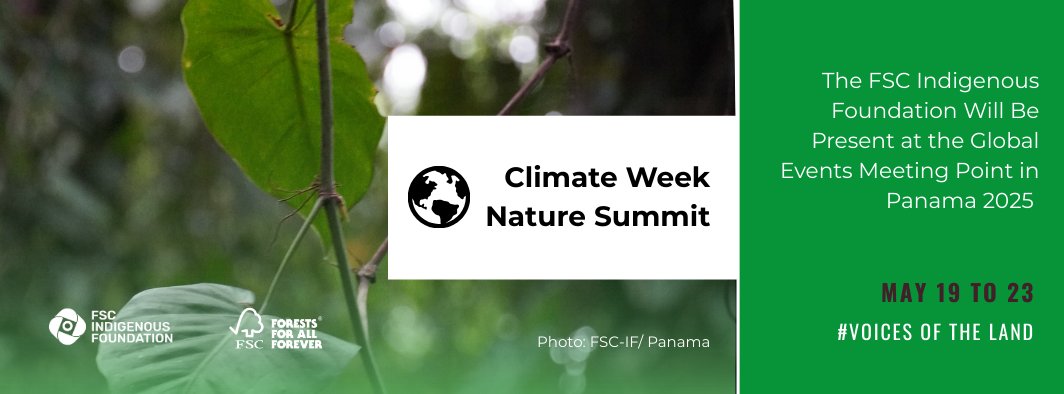
The future of development lies in the integration of ancestral knowledge, technology, and circular economy to build resilience and adapt to climate change. From May 19 to 23, 2025, Panama will host Climate Week 2025 and the Nature Summit, positioning itself as a global hub for climate action. Though distinct in approach, both events share a vision of inclusive, transformative solutions. The FSC Indigenous Foundation’s participation—through leaders like Hindou Oumarou Ibrahim and Minnie Degawan—underscores the vital role of Indigenous voices in global climate decision-making.
Climate Week: Turning Commitments into Action
Organized by the UNFCCC, Climate Week is a global platform that brings together governments, organizations, and civil society—highlighting Indigenous Peoples’ contributions to climate solutions. In 2025, two editions will take place: the first in Panama (May 19–23) and the second in Africa, both paving the way for COP30 in Belém, Brazil.
After a pause, Climate Week returns to turn Paris Agreement commitments into action. Key themes include NDC implementation, climate financing, technology, carbon markets, and the vital role of Indigenous communities in climate governance.
Nature Summit: Driving Investment
In parallel with Climate Week, the Nature Summit will take place at Panama’s Biomuseo, uniting government leaders, investors, and experts to drive nature-based solutions. The summit seeks to align public and private investments with UN goals on climate, biodiversity, and desertification—promoting a regenerative economy grounded in ecosystem conservation and Indigenous leadership.
The FSC Indigenous Foundation will play a key role, amplifying Indigenous-led solutions and advocating for funding that reflects community priorities. As Indigenous leader Minnie Degawan affirms, “Funds must align with Indigenous priorities.” Like Climate Week, the Nature Summit offers a high-level platform to mobilize capital, partnerships, and political will through innovation, science, and ancestral knowledge.
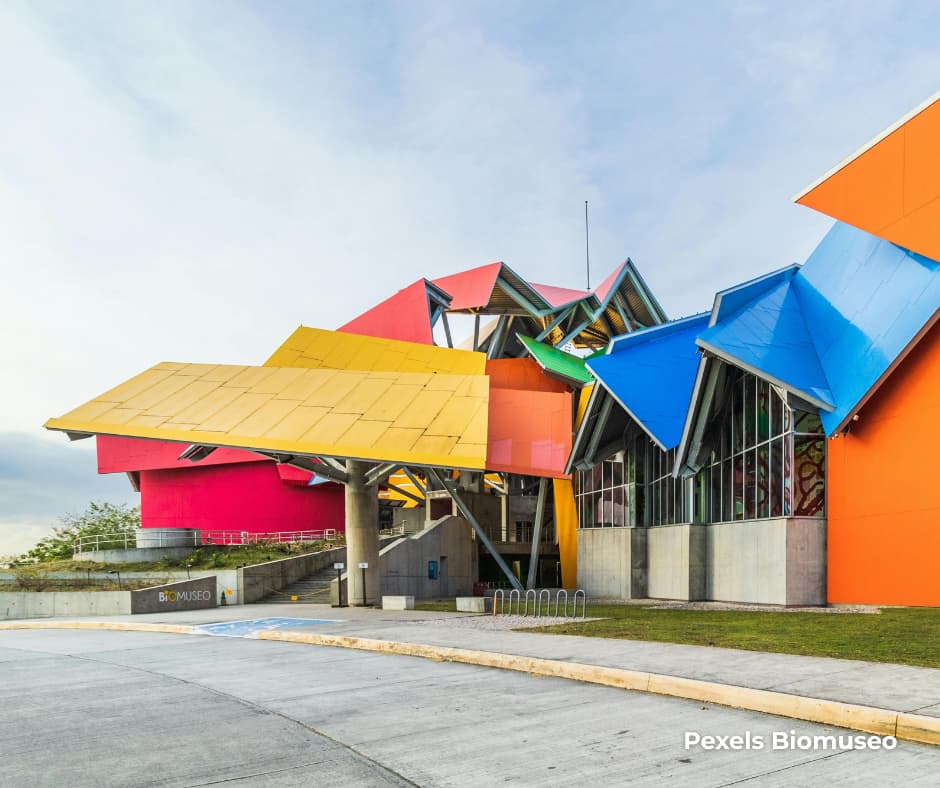
The Role of Indigenous Peoples
Both events recognize Indigenous Peoples as essential actors in the climate struggle. Indigenous communities manage a quarter of the world’s lands, which host 80% of global biodiversity. This reality demonstrates that Indigenous Peoples are already leading solutions based on their worldviews, and that their ancestral knowledge is vital to addressing climate and conservation challenges.
In this context—where conventional solutions have proven insufficient—the FSC Indigenous Foundation (FSC-IF), led by Managing Director Minnie Degawan, together with other Indigenous representatives will highlight the contributions of Indigenous Peoples in resolving the global issues.
The Foundation’s role is to showcase Indigenous forest management, ancestral governance, and intergenerational knowledge offer viable and holistic responses to climate change and biodiversity conservation. The FSC-IF aims to support efforts by Indigenous Peoples for these messages to be heard by policy makers and other actors.
It also works to ensure that global climate policies recognize and respect the territorial and cultural rights of Indigenous Peoples.
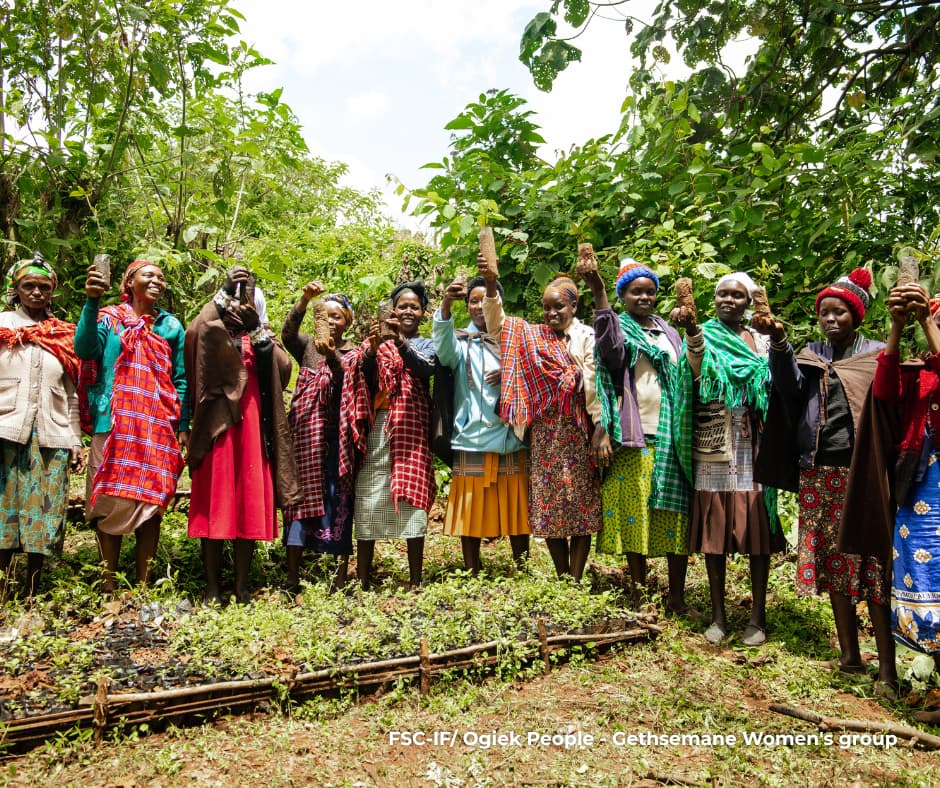
Two Paths Toward the Same Goal
Although Climate Week and the Nature Summit share a common goal, their approaches differ. Climate Week emphasizes fulfilling and following up on multilateral commitments, strengthening national and local capacities, and fostering dialogue among diverse actors through workshops, forums, and participatory spaces. In contrast, the Nature Summit positions itself as a high-level platform focused on mobilizing resources and investments, connecting governments, funders, and public sector leaders with conservation and sustainable development initiatives. While one prioritizes action through policy and planning, the other drives implementation through strategic financing and innovative partnerships. Both contribute to the same goal: a just, effective, and inclusive ecological transition.
Following the Voices That Care for Mother Earth
The FSC Indigenous Foundation’s participation in these forums is another step in the fight for climate action that recognizes the ancestral knowledge and rights of Indigenous Peoples. From their active role in defending territories to their presence in international forums, these voices are key to imagining a sustainable, just, and diverse future.
Over the years, the Foundation has worked globally alongside Indigenous organizations to strengthen their capacities, implement dialogue processes, and ensure that their priorities are at the center of decision-making. This includes training in economic development, sustainable forest management, and the design and implementation of project approval mechanisms led by Indigenous Peoples themselves.
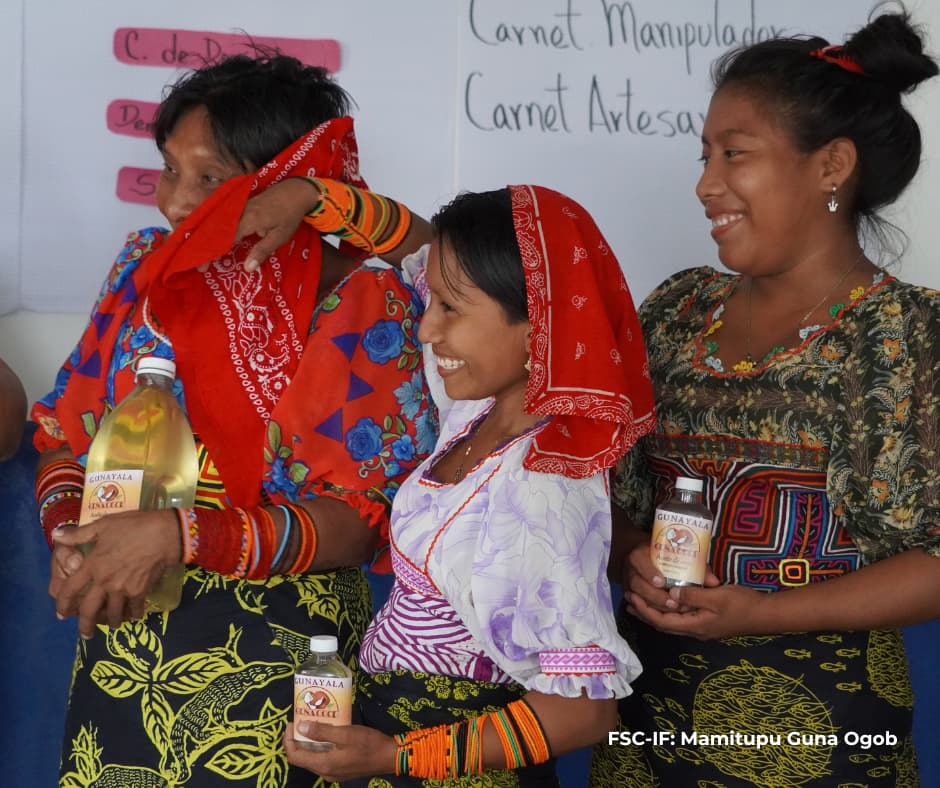
We invite all governmental, financial, and social actors to closely follow the Foundation’s work and commit to a future where investments align with Indigenous voices and priorities. It is time for global financing to take root in these realities.

